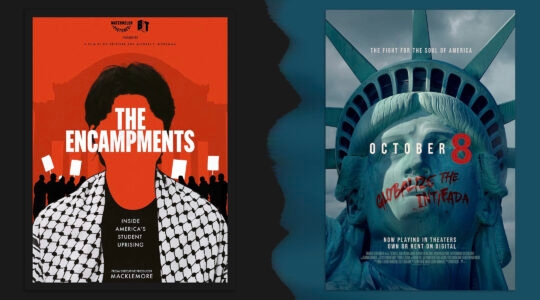American Jews have loudly applauded the women who have come forward in recent months to reveal the sexual harassment and abuse they have suffered at the hands of politicians, journalists, intellectuals and entertainers. The emergence of the #MeToo movement resonates for those of us who place a premium on principles such as gender equality, ethics and social justice.
Yet the Jewish community still has not confronted its own #MeToo problem — the horrible reality that prominent figures in Jewish organizations and institutions have sexually harassed women. I know because I am one of those women.
Like many women in America, I have endured unwanted touching and sexual contact. During a visit to the Bronx Zoo at age 8, a man exposed and rubbed himself against me. Since high school there have been incidents in which strangers groped me. I went about my life feeling like something had been stolen from me, without a road map for how to heal or seek justice.
All of these #MeToo experiences haunt me. Compounded, they weigh me down, make it hard to concentrate on the work I love, and make me question my own worth in ways that are difficult to articulate. One incident, however, was different from the rest in important ways. It was not a random man pawing me as I walked by him on the street. In this instance, the wrongdoer got away with it because his prominence in the Jewish community made me hesitant to tell anyone.
It happened at a conference of a prestigious Jewish organization several years ago. An older, married man used his seniority to lure me to dinner with the promise of professional guidance. I suggested we go someplace nearby the venue and invite other people to join us. He vetoed both of those ideas. Clearly, he had a plan and I was naïve, thinking that surely nothing improper would happen because, after all, we were two professionals meeting to discuss my professional future. But I believe he saw me as neither a mentee nor a colleague, but rather a potential conquest.
He took me to a candle-lit Italian restaurant that was entirely unsuitable for an ostensibly professional meeting. He peppered me with personal questions about my love life. He reached across the table and took my hand in his. I could not get out of that restaurant and back to the conference hotel fast enough. But despite my obvious discomfort, he persisted in accompanying me into the elevator and up to my floor. I should have insisted on parting ways in the hotel lobby. But he is a leader in his field and I was afraid to offend him.
I firmly said “good night,” told him that he did not have to walk me back to my room, and turned to walk away when he suddenly wrapped his arms around me, pressed his body against mine, and forcefully kissed my neck in a way that only lovers should. I broke free and ran to my room, reeling from what had just happened. I felt violated and betrayed. Adding to my wound, he texted me the next day as if he had not done anything wrong. I continue to feel uncomfortable when I see him at professional events.
In the winter of 2017, I decided that I could stay silent no longer. Slowly, cautiously, I began raising the incident with trusted colleagues. The reactions shocked and saddened me. “Oh, he’s been acting like that since graduate school, he hasn’t changed,” one person said. Another declared: “Everyone knows you should never be alone in a room with him.” But I didn’t know. Apparently, many people in the Jewish community are aware of his behavior yet none have spoken out publicly about him.
For far too long, women and girls were conditioned to believe that anything short of rape was not serious enough to warrant complaint. In my earlier years I was molested but did nothing at the time.
The #MeToo movement made me realize that I was not alone. Women of all religions, ethnicities, races, educational backgrounds and socioeconomic levels are revealing that they have been mistreated, usually by men in positions of seniority, authority, power or a combination. It has also helped me understand that all nonconsensual sexual contact is wrong and that we should hold men who engage in it accountable.
There needs to be a Jewish response to the #MeToo movement. There are plenty of whispers and grumblings about abusive colleagues among Jewish academics. But people are afraid of personal or professional consequences if they dare to reveal the truth about these wrongdoers.
American Jewry is very good at singing its own praises, celebrating people’s Jewish identities when they do something worthwhile or admirable. But it’s time for the Jewish community to face its own #MeToo crisis. If we want to create positive cultural change for ourselves and for our daughters, women must speak out and the Jewish community must act— regardless of the individual’s position or influence.
Keren R. McGinity teaches American studies at Brandeis University, is a research associate at the Hadassah-Brandeis Institute, and is the director of the Interfaith Families Jewish Engagement graduate program at Hebrew College. She serves on the Sexual Misconduct Task Force of the Association for Jewish Studies.
The New York Jewish Week brings you the stories behind the headlines, keeping you connected to Jewish life in New York. Help sustain the reporting you trust by donating today.





